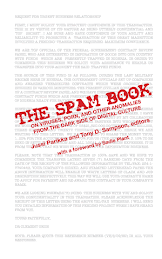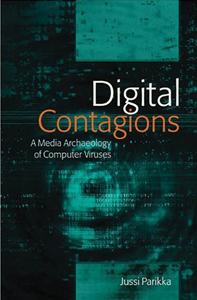Inspired by some of the discussions in Utrecht, I thought to remind myself of an article I need to write. We did a piece on “neomaterialist cultural analysis” with Milla already in 2006 for the Finnish journal of Cultural Studies – Kulttuurintutkimus --- but never found time after that to produce anything similar in English. We had the idea of writing a short book on the topic but that’s also on ice due to lack of time. However, I believe that we should revisit again our article idea that could be something like “Radical Temporality and New Materialist Cultural Analysis.” Here an extended abstract/idea of something we would need to write with Milla.
In the midst of various “strange materialities” that we encounter through such crucial contemporary issues as ecocrisis, financial crisis, and more generally high tech network culture, an interest in what could be called new materialist cultural analysis has emerged. The interest in new materialist notions for cultural analysis can be connected to this horizon of contemporary culture where, to use Karen Barad’s idea, we need less critique than more creative modes of engagement with such issues. Ideas of new materialism can be connected to various sources and thinkers that range from Manuel DeLanda to Bruno Latour, materialist feminisms in the mode of Karen Barad to German media theory (e.g. Friedrich Kittler and Wolfgang Ernst) and from such nomadic perspectives as Rosi Braidotti’s to the earlier “spatial materialism” of Lawrence Grossberg. And then there would be a number of other people writing in this field as well, whether acknowledging themselves as "neomaterialists" but still clearly adopting such positions; e.g. Luciana Parisi, Tiziana Terranova and for example Tony D. Sampson whose non-representational Virality-book is coming out next year from University of Minnesota Press. So the list is not exhaustive, but does already point to the complexity of the notion itself. Is there even such a thing as “one” new materialist mode of cultural analysis? How do the various thinkers contribute to the notion? How do they develop such notions of materiality that move beyond both Marxist notions of materiality as analysis rooted in the material practices of reproduction of culture and philosophical notions of the material as a substance, distanced from “mind” or meaning, and in itself passive? As a pragmatic vehicle, neomaterialism provides both a spring board from “old” cultural studies to “new” cultural studies where thinkers that range from Deleuze and Guattari to Agamben and others are integrated in an increasing pace to the curricula of media and cultural studies as well as an important crossing between humanities and sciences/technology.
What we want to argue, and focus on here, is the move from spatial notions of materialism to “radical temporality” as a theme that connects various otherwise quite heterogeneous thinkers of the differing materialisms that characterise for example biodigital culture. In terms of temporality, we can tap both into the by definition temporal processes of network culture and computers, but it lends itself as much to a thinking of time-critical arts, such as performance and sonic arts where the philosophical grounding of the messy temporality can find concrete assemblages through which to illuminate further the philosophies. This does not mean a simple “applicability” but a mode of diffraction and entanglement directly with the material (Cf. Barad) as exemplified through embodiment, relations between bodies, and temporality as the connecting concept.
In other words, the focus is going to be on Karen Barad’s quantum physics orientated feminist materialism that feeds both into new notions of temporality as a continuous reiterative reallocation; on the inhuman temporal perspectives that are crucial to take into account in a consideration of the non-human ecological contexts of subjectivity; the process ontological perspectives that offer a way to think such ecologies (whether of the psyche, the social, the natural or of medial kinds) as ones based in such milieus that are primarily time critical and hence dynamic.
However, despite the role such notions of new materialist brand have played in contexts of science and technology – and quite understandable so –we want to point towards its usefulness also in art contexts. Curiously the radical temporal new materialism finds here a common ground with Massumi and Manning’s own radical empiricist and Whitehead inspired accounts of how to approach art and movement as a continous transition and displacement – the primacy of movement. Hence, radical temporalities can be found through singing bodies, performing bodies, and other such assemblages of art.
The idea needs of course much work, but I think it should focus primarily on temporality as the defining theme, and thought through such time-critical arts as sonic and performance arts. Here the link to work, creativity and post-fordism could be explicated (and has been noted by Nigel Thrift) but that is outside this article; we actually touch on that theme on another text that should be coming out this or next year in a book on new materialism edited by Barbara Bolt and Estelle Barrett.








No comments:
Post a Comment